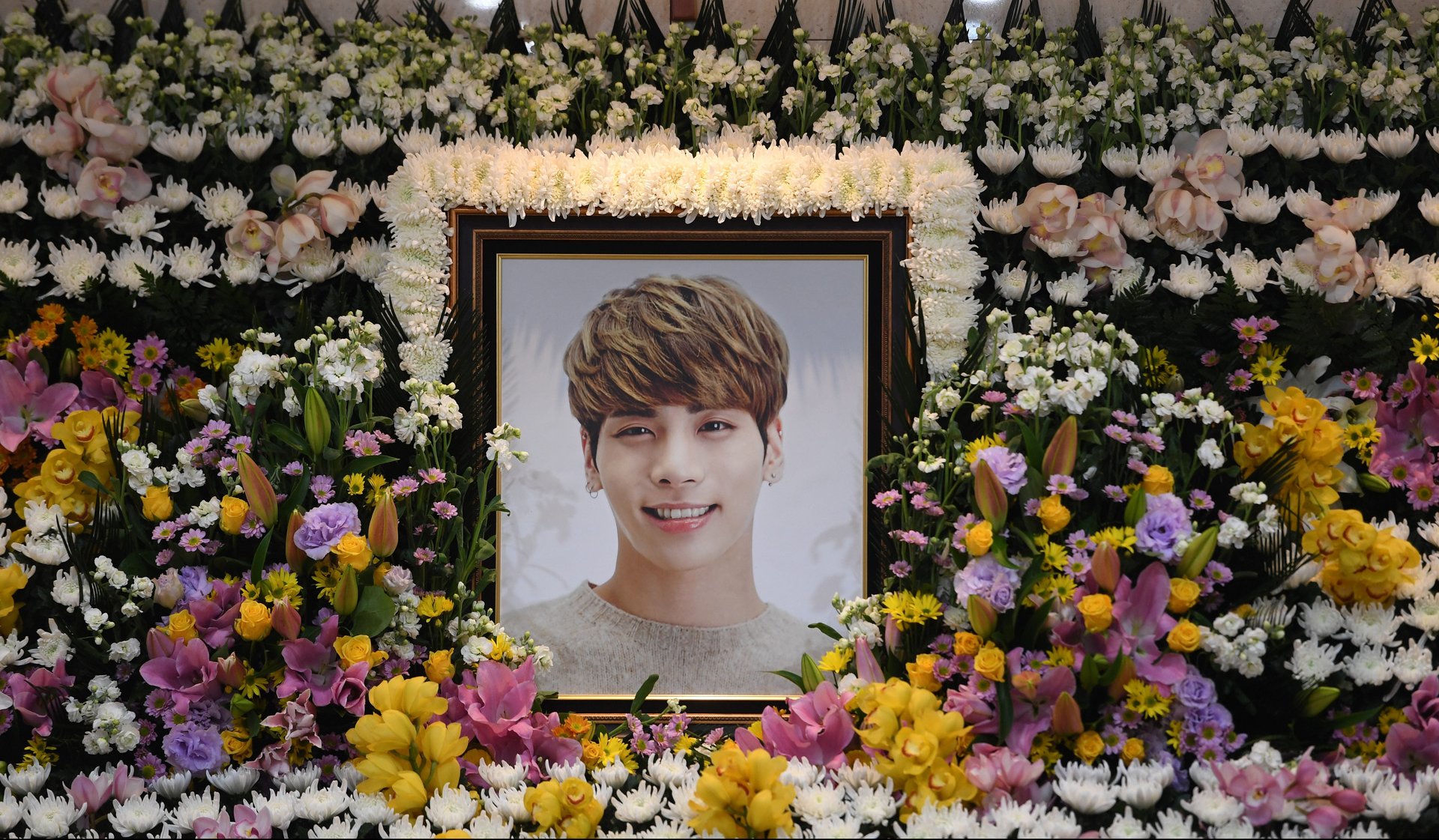The suicide of a K-pop star is opening up a conversation on mental health in South Korea
Kim Jong-hyun, the 27-year-old lead singer of K-pop boy band SHINee, committed suicide yesterday (Dec. 18). In his suicide note, Jonghyun, as the singer is more widely known, described his battle against depression.


Kim Jong-hyun, the 27-year-old lead singer of K-pop boy band SHINee, committed suicide yesterday (Dec. 18). In his suicide note, Jonghyun, as the singer is more widely known, described his battle against depression.
“I was broken from the inside. The depression slowly chipped me away, finally devouring me… Troubling thoughts flooded my head. I never got the chance to learn how to change dull pain into pure joy,” according to an English translation of a note made public by Nine9, a member of K-pop band Dear Cloud and a close friend of Jonghyun. Nine9 said she released the note according to Jonghyun’s wishes and to shed light on his mental health struggles.
Jonghyun’s death has sparked a renewed conversation in South Korea about the grueling demands of the country’s entertainment industry, as well as the stigma over mental health that prevents many people in Korea from seeking appropriate help when in need.
Being perfect
The stresses of being in the public eye are a cause for concern for artists in the entertainment industry everywhere in the world, as witnessed by the recent suicide of Linkin Park frontman Chester Bennington, who had been open about suffering from depression and addiction for many years.
But the Korean entertainment industry is particularly demanding, one that often robs young aspirants of their privacy and agency from as young as their early teens. The typical path to K-pop stardom involves being signed to one of Korea’s entertainment giants like YG, JYP, or SM Entertainment, who discover the next big thing (paywall) either by scouting boys and girls from around the world or through open auditions. Some teenagers also enroll in private training academies in the hope of becoming a K-pop star.
Once a band is formed, members are typically forced to live together, at least until the members are rich and successful enough to move out on their own. These days, young stars are also expected to learn to sing in another language, such as Japanese or Chinese, to play to fans in those markets. SHINee, for example, has a particularly large following in Japan and releases songs in Japanese. Male stars also have the added pressure of interrupting their careers to complete their mandatory military service.
K-pop stars are expected to be near-perfect role models for their fans. Often this means a public love life is out of the question. When two members of boy band EXO and Girls’ Generation were found to be dating each other in 2014, they apologized to their fans for “hurting” them. Drug use, meanwhile, could break someone’s career. T.O.P, a member of K-pop royalty Big Bang, was arrested earlier this year for using marijuana, and later rushed to the hospital after reportedly overdosing on tranquilizers. T.O.P, who was doing his military service at the time, said he would regret his drug use for “tens of thousands of years.”
A wake-up call
Kwon Young-chan, an entertainer-turned-psychologist who runs a suicide-prevention counseling center for celebrities, wrote a Facebook post (link in Korean) in response to Jonghyun’s suicide that it was necessary to examine the current K-pop training system, which he said “robs growing children of the time with their friends and family.” The former comedian also suggested a system where artists can take a sabbatical year after finding success to assess their physical and mental health and seek professional help if necessary.
Dumbfoundead, a Korean-American rapper, tweeted that he hoped Jonghyun’s death would be a wake-up call to the Korean entertainment industry to take mental health more seriously:
SHINee’s agency SM Entertainment released a statement confirming Jonghyun’s death. SM, YG, and JYP did not immediately respond to requests for comment by Quartz on the pressures of the Korean entertainment industry.
Attitudes in Korea are shifting as more people start to question the ill effects of a society that has long prioritized work and academic achievements over mental health and happiness. More K-pop stars too are speaking out about their struggles with depression and other health issues. Some are taking breaks from, or altogether quitting, the entertainment industry. JinE, a member of female group Oh My Girl, said in October she was leaving the group after a long struggle with anorexia. Following T.O.P’s suspected drug overdose, his doctor said the singer should receive mental health treatment.
Over 130,000 SHINee and K-pop fans have also signed a petition on Change.org started by a fan in Costa Rica petitioning the Korean government and Korean entertainment agencies to take the issue of mental health for artists in the entertainment industry seriously.
There are also signs of change in the entertainment industry, with South Korea’s Fair Trade Commission earlier this year ordering the country’s largest entertainment conglomerates to end so-called “slave contracts,” which can impose severe financial penalties on young stars who want to break their compacts.
Hailey Jo contributed reporting.